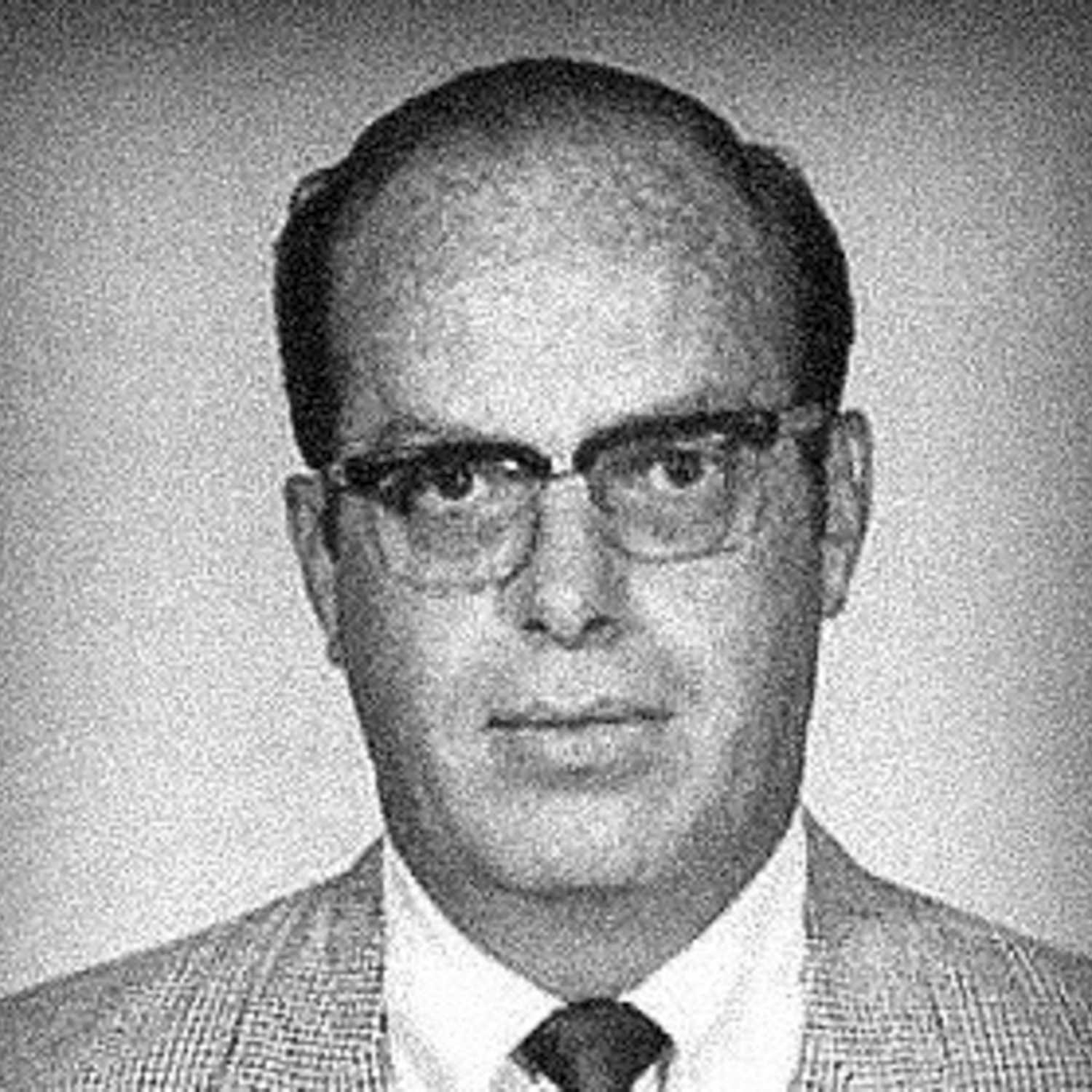You will not find it difficult to prove that battles, campaigns, and even wars have been won or lost primarily because of logistics.
General
Dwight D. Eisenhower
Raymond Carlin Rayner does not fit the image most people associate with a globe-trotting CIA officer. Known for his easy-going, straight-forward attitude and a dry sense of humor, Ray did not represent the James Bond-like stereotype that Hollywood often portrays CIA officers to be. In fact, Ray did not work in what is now the National Clandestine Service (the branch that collects human intelligence overseas) or even the Directorate of Intelligence. Ray was a logistics officer.
Although his job title might not be what you expect at CIA, the Agency would cease to run without logistics officers like Ray. Logisticians use their resourcefulness to transport supplies—sometimes large and cumbersome—across oceans and landscapes worldwide, often under less-than-ideal conditions. Simply put, people like Ray are experts at getting things where they need to be, when they need to be there, no matter the obstacles.
Ray—a 23-year veteran who would soon be eligible for retirement—was serving in his third year managing communications logistics support for our missions across Africa, when an intruder broke into his house and killed him. Ray was 44 years old and left behind a wife and five kids. This is his story.
Early Years:
Born and raised in Brooklyn, New York, Ray attended St. Francis preparatory high school, where he was a boxer and an all-star football player. He graduated in 1948. Although he spent a year studying accounting and commercial law at New York University, Ray had a knack for technology and communications, which drove him to ultimately get his degree in TV and radio repair from a Brooklyn trade school, Crescent Radio and Television, in 1951.
While in school, Ray also worked in a variety of part-time jobs, serving as a chauffeur, repairman, office clerk, truck driver, accountant, bookkeeper, and even a chimney sweep. Unbeknownst to Ray at the time, this jack-of-all-trades background would help him throughout his career at the CIA.
Life at the CIA:
Ray applied for a job at the CIA in 1950, but was ultimately turned down because there were no positions available that matched his qualifications. However, after earning his radio and TV repair degree, Ray reapplied and landed a job as a communications technician in the CIA’s Office of Communications. He started on April 22, 1951. He was only 21 years old.
Ray worked several assignments as a “commo man,” but this was during the early years of the US military draft, and the CIA would likely lose Ray to the Army if he wasn’t appointed to an overseas position. There were no openings within the communications office, so Ray transferred to the Office of Logistics, serving several tours abroad in Asia and Europe. He was promoted several times and quickly rose through the Agency ranks. Ray’s diverse working background served him well in logistics. He became known among his managers as, “a jack-of-all-trades and a master of many.”
Ray returned to Langley for a short stint in the Supply Division. In February 1956, seeing it as his duty, Ray began a six-month deployment with the US Army. The Agency allowed Ray to temporarily resign, and, after he was honorably discharged in August 1956, he returned to his job at the Agency in the Supply Division.
After several more assignments—at headquarters and abroad—Ray was again promoted, and in October 1964, he and his growing family (which by then included four children) were sent to Southeast Asia, where he served for three years as the Station’s logistics officer. However, Ray’s responsibilities far exceeded those normally expected of a logistician. He was routinely praised for his exceptional performance and devotion to the mission, which often required him to work long hours, 7 days a week, in less than ideal conditions. Ray had a knack for negotiating complicated foreign bureaucracies in relation to logistical matters, and he was known for his ability to improvise creative solutions in the field when faced with supply hurdles. As one of Ray’s supervisors noted, “He is one of the most valuable members of the Station.” Ray even received an official Letter of Commendation for his work.
Nevertheless, Ray eventually grew fatigued with the hectic, unpredictable, and often frustrating working environment and returned to CIA Headquarters to work once again in the Office of Logistics Supply Division.
His Final Mission:
In 1973, Ray took an assignment in Africa overseeing logistical support for one of the Agency’s most important regional support offices. His wife, three youngest kids, and family dog came with him.
Former CIA Director Porter Goss, during a ceremony honoring Ray’s service, described Ray as “the sort of specialist on whom our global mission depends.” Ray understood this. That’s why he took the assignment Africa, despite the potential danger and difficult working environment.
In the early morning hours of November 24, 1974—more than two years into his assignment—an unknown assailant broke into Ray’s home and attacked him: Ray sustained a serious head injury. He was rushed to the local hospital, where a local physician and the regional State Department doctor took charge of his case, but his condition worsened. Because of the severity of his injury and possible complications, he could not be medivacked, and instead had to undergo emergency surgery. The surgery was not successful. Ray Rayner died on 26 November, 1974, two days after the attack. His wife and five children, whose ages ranged from 11 to 20, survived him.
Honoring His Service:
For almost 30 years, Ray’s sacrifice was marked by an anonymous star on the CIA’s memorial wall. But on May 22, 2006, Ray’s name was revealed and his sacrifice immortalized in the CIA’s Book of Honor. During the annual ceremony to commemorate the CIA’s fallen, Director Goss shared Ray’s story with the small, intimate group of family members and agency employees who had come to honor their friends and loved ones. In his remarks, Director Goss described the sacrifice Ray and officers like him made in service to our nation:
“We know by the life of Raymond Rayner and all the others who have given their lives for our country—whether Agency officers, uniformed military, or citizens such as those who fought the terrorists on 9/11—that our freedom exacts a heavy cost. As an intelligence service dedicated to defending our nation’s liberty, we know that CIA will always bear part of that price. Each day—not just during ceremonies such as this—we dedicate ourselves to the memory of our fallen heroes. We seek to honor them by carrying on the mission with which this Agency has been charged since its creation.”
The mission of the CIA would be impossible without support officers like Ray. Their job titles might be less-than-glamorous, but their contribution to the safety and security of our country is immeasurable. To paraphrase President Eisenhower, no one has won a war without logistics on their side.

